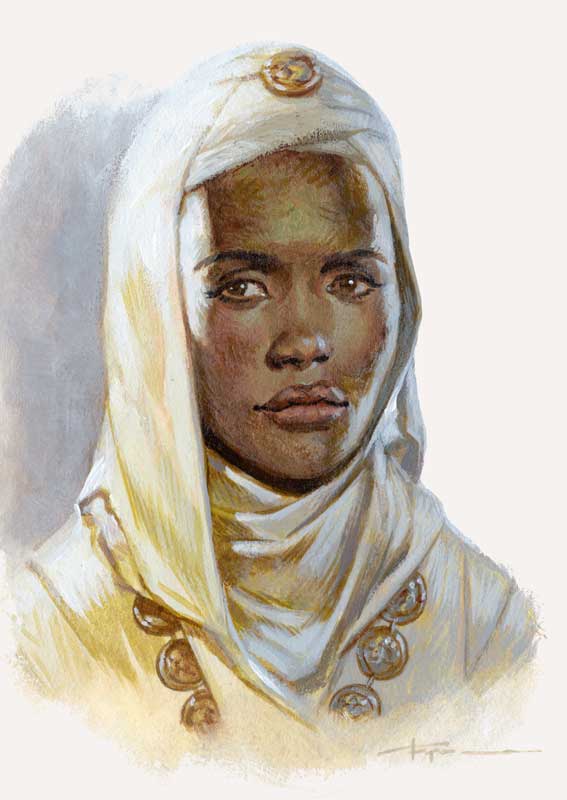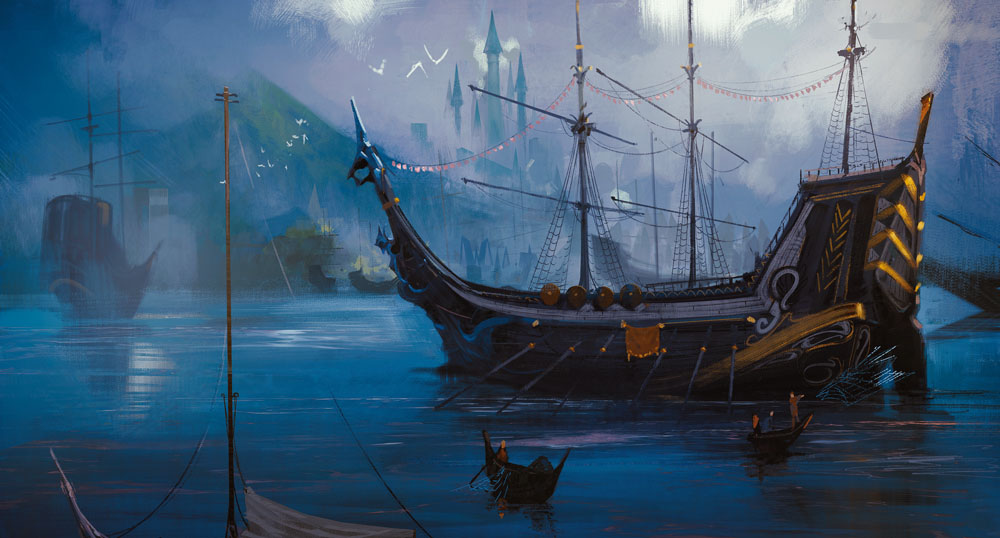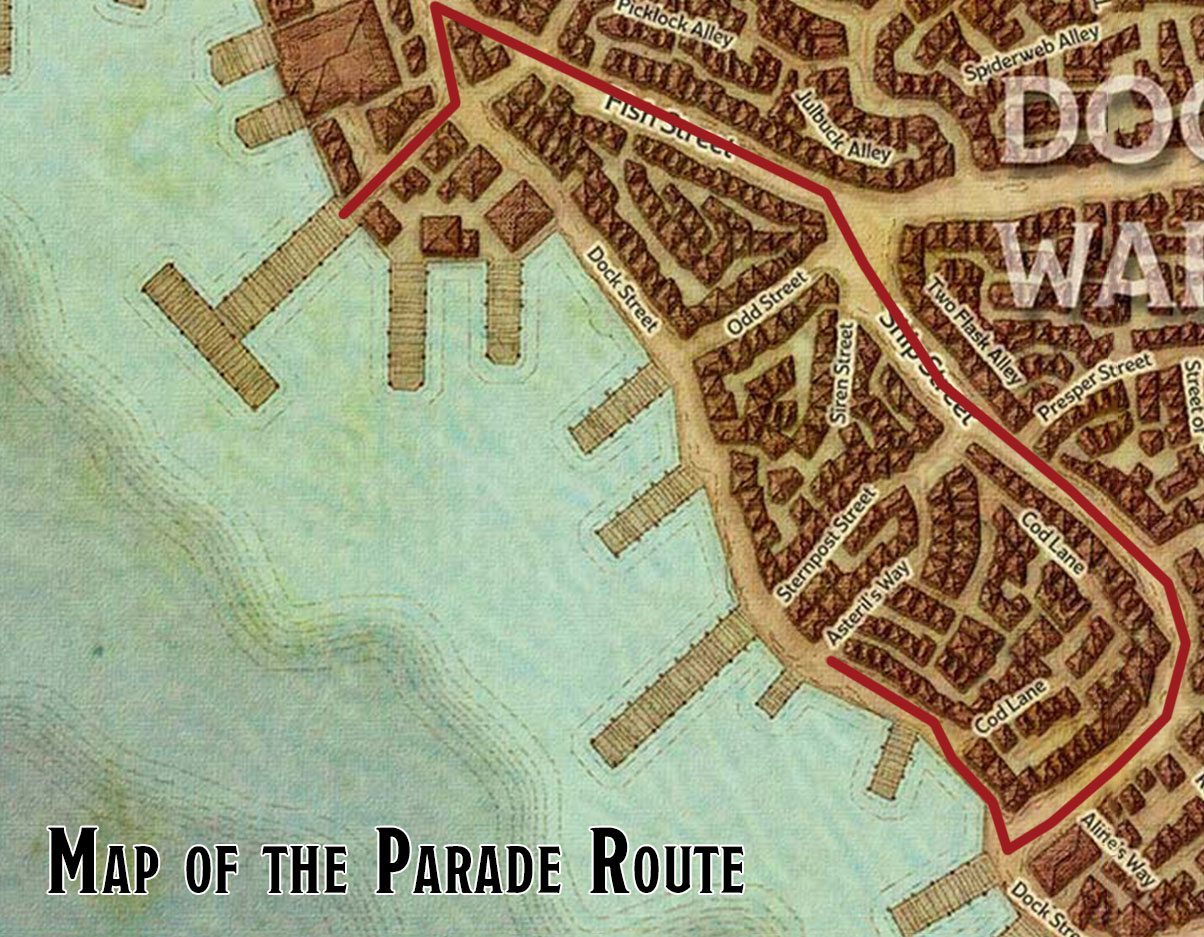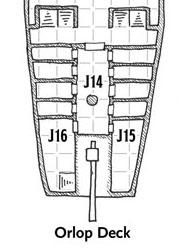Edana, Theren, Kora, and Pashar leave Trollskull Manor – the inn that they own – and head down to the Docks to get into position for their heist to steal Captain Zord’s crystal ball from the submersible attached to the bottom of the Eyecatcher.
They leave behind Kittisoth Ka’iter, the winged tiefling pirate who has been asked by Renaer Neverember to accompany him to the Shipwrights’ Ball. Renaer arrives in a personal carriage, dressed in practical finery and with his scarlet hair pulled back in a long plait down his back.
As Kitti steps up into the carriage, the rest of the group arrives dockside. Their plan is for Edana and Theren – one an elf of the city; the other an elf of the wilds – to go under the waves and infiltrate the Eyecatcher while Kora and Pashar provide whatever oversight they can from Dock Street.
As they’re making their final preparations, off to their right they can see there’s a lot of activity around the pier where the Sea Maidens Faire has set up. They see the carnival’s griffon take flight, signaling the start of a parade which marches off the end the pier. They’re worried for a moment that the parade will turn towards them, but instead it heads straight into the city towards Fish Street.
The dragon Zellifarn arrives, thrusting his head up out of the dock waters and plopping it down on top of the Dock Street retaining wall. “Are you ready?”
Swallowing their potions of invisibility and water breathing, Edana and Theren leapt down and grabbed on the wing-joints of the dragon. As they disappeared into the dark waters—
CUT TO: Renaer and Kitti’s carriage pulling up in front of Shipwright’s House.
Splitting the party is great. Swapping back and forth between simultaneous scenes is the easy mode for effective RPG pacing. This technique is described in more detail in The Art of Pacing, but generally speaking I’m looking to cut frequently from one set of action to the other.
You may see people express ideas similar to this as trying to “avoid players become bored” or something like that. If you’ve got a good game going, though, that generally won’t be true: The really good tables are entertaining not merely in participation but ALSO in the role of audience. In other words, if things are going well, players enjoy watching what happens in the game regardless of whether or not they’re in the current scene.
A good cut, in fact, is often about targeting that audience stance: The appeal of the cut for players not in the current scene is not primarily about them getting to act again; it’s in the suspense of wondering what happens next. When you’ve got a group firing on all cylinders and you pull it off right, you can get players wanting their scene to end because they have to know what happens next in the other scene.
And when it really works, you can get everyone at the table feeling that way all the time – not only engaged in their current scene, but driving the action forward and constantly looking forward to the next.
You can get that effect without cutting between simultaneous scenes, too. But, like I say, doing it with simultaneous scenes is the easy mode.
The carriage pulls up. Kitti looks up the long stairs toward’s Shipwright’s House: The stairs cut between the buildings facing Dock Street, leading up to the strange opulence of Shipwrights’ House where it’s nestled between the more typical dockside businesses and tenements.
Renaer took her arm and, as they began walking up the stairs, Kittisoth saw the griffon in the air off to her left. She reflected on her own encounter with one of the city’s griffon-riders a few days earlier.
The griffon is a crossover. As noted in The Art of Pacing, you want to enrich the experience of simultaneous scenes by including elements from one scene into the other. This is a very simple crossover: The PCs in Group A see the griffon leave the Docks. The PC in Group B sees the griffon flying into the city.
At this point I’m also triggering the Arrival. This is kind of a universal first beat in the party planning structure: It’s a chance to establish the geography of the event so that the players can orient themselves for the action that follows. I’ll often have the Arrival marked by some sort of big event or announcement, but in this case I don’t. This gives Kittisoth and Renaer a chance to chat with each other as they head up the stairs. Which they do, dropping a number of references to past events and in-jokes. And then…
Kittisoth had been watching the flight of the griffon. It seemed to have almost circled Shipwrights’ House and was now off to her right. “What’s with that griffon?”
Renaer looked up. “I think it’s part of the parade.”
And we CUT BACK TO Edana and Theren.
This was an effective place to cut because the players had earlier, out of character, joked that the Sea Maidens Faire parade might be going to Shipwrights’ House. So when Renaer announced that the griffon (which the group, although not Kittisoth, knew was part of the Sea Maidens Faire) was “part of the parade,” the entire group immediately realized that the crossover wasn’t just incidental; the two scenes that they had thought were going to be wholly separate affairs were, in fact, on a much more significant collision course.
So we move away from that revelation and give the audience/players a chance to really process the implications.
Meanwhile, under the Eyecatcher, Edana and Theren could now see the submersible that Zellifarn had told them about. Unfortunately, they couldn’t see any direct means of access, so they were going to have to figure out some way to infiltrate the submersible from the Eyecatcher.
Following a suggestion that Kittisoth had made, they decided to climb the anchor chain and enter the chain house. Invisible as they were, this was easily accomplished. The chain house had no immediately obvious egress, but a little exploration quickly revealed a concealed access hatch that let them out into a narrow passageway on the lower deck.
If you look at the maps of the Eyecatcher, there is no chain house. But there should be, right?
I already knew going into Dragon Heist that I was going to have to improvise around certain shortcomings from the maps. (They don’t include any windows. Windows are very important to a heist.) I had not thought about this particular absence, but this is just good advice in any case: The map is not necessarily the territory. If your players ask where the privy is, you didn’t put one on the map, but logically a privy should exist… figure out where the privy goes!
This is somewhat similar to what I discussed in “Whoops, Forgot the Wolf,” but the gist is that you’ll want to figure out how to integrate your errant chain house seamlessly. In this case I saw the compartment included for the whipstaff steerage and decided that the chain house would basically piggyback in that space.
As you can see, there’s no door there. Easy enough to add one (as it wouldn’t contradict any previous onscreen continuity), but just as easy to hypothesize that it’s actually a concealed access panel since this compartment would rarely need to be accessed.
Meanwhile, up on Dock Street, Pashar had also been watching the griffon circle towards Shipwrights’ House. He got a very bad premonition that something terrible was going to happen at the Ball, and there was little he could truly do to help here if anything went wrong on the Eyecatcher in any case. So he and Archimedes, his owl familiar, peeled off and headed towards the party to put eyes on Kitti’s date.
The other thing about cutting between scenes is that your players will often start playing through moments that don’t require your attention as the GM: While I was running the scouting and infiltration of the Eyecatcher with Edana and Theren, Pashar and Kora, who were sitting at the far end of the table, played through a detailed discussion of Pashar’s fears regarding the party and his decision to leave Kora alone.
Once again, this is great for pacing and also opens up opportunities for interactions that I, as the GM, might have otherwise skipped over. Great stuff.
The Further Adventures of Pashar and Archimedes won’t enter into the chunk of the campaign I’m discussing here, but this did put them in position for some very funny play-by-play commentary on Kittisoth’s date with Renaer later on.
Back at Shipwrights’ House, Kitti and Renaer had circled off to one side of the large lawn that lay in front of the mansion. As they continued discussing Kitti’s recent history with griffons, a Chultan woman approached them. Renaer introduced her as Obaya Uday.
 At this point, I’m letting the party begin to play itself. As I describe in Party Planning, most of this process boils down to:
At this point, I’m letting the party begin to play itself. As I describe in Party Planning, most of this process boils down to:
- Which NPCs are talking to each other? (Consult your guest list.)
- Who might come over and join a conversation that the PCs are having? (Again, guest list.)
- What are they talking about? (Look at your topics of conversation.)
In this case I’m just looking at the guest list and pulling Obaya Uday out more or less at random. I put a checkmark next to her name, and then I look at her character write-up:
Obaya, a priest of Waukeen, has traveled from Chult to sponsor expeditions into Undermountain, with the goal of bringing its magical treasures back to her employer, the merchant prince Wakanga O’tamu of Port Nyanzaru.
(Normally I’d use the Universal NPC Roleplaying Template, but in this case I was running the party on-the-fly and so I’m just using Obaya’s write-up from the Dragon Heist book.)
What would Obaya talk about? Expeditions to Undermountain. Who’s present? Renaer. So contextualize the topic she’ll talk about to the characters who are present and…
“Have you given any thought to my proposal?” Obaya asked.
“I have,” Renaer said. “But I don’t think an expedition to Undermountain is something that my current schedule will allow for.”
And then relate it to the PCs, bringing them into the conversation (if they haven’t already injected themselves):
“You know who you should talk to?” Renaer added. “My friend here. She and her companions rescued me from Zhentarim, and they could do very well in Undermountain.”
Kitti blushed at the compliment.
Now I look at my guest list again and plan my next move while continuing to play through the current conversation. This sets me up to introduce the next element before the conversation ends. You don’t always have to do this, but it’s often more effective in a party to add a new element to an interaction rather than allowing the conversation to run its course to awkward silence.
(By the same token, you don’t want to never have a social interaction end so that the entire party just happens in one big conversation. Have NPCs excuse themselves. Give the PCs prompts to leave and engage action somewhere else. Cut away and, when you cut back, simply move past the end of the conversation and ask who they want to talk to next. But I digress.)
As Kitti and Obaya began discussing the details of Obaya’s proposal, Mirt the Moneylender circled in. Kittisoth’s friend Kora had recruited all of them into the ranks of the Harpers, and she had met Mirt as a Harper agent. It was partly on his behalf that they were attempting to shut down Captain Zord’s nimblewright operation.
Since there was no way that Kittisoth should know any of that, she wisely acted as if she had no idea who this lecherous man was and allowed herself to be introduced to him.
“I am so glad, Renaer,” Mirt declared, “that you’ve stopped chasing those thin waifs and found yourself a woman with… wings.”
Before anyone could respond to that, a trumpet sounded. Turning, Kitti saw that Captain Zord had just ridden up onto the lawn atop a polar bear. The griffon circled above. The Sea Maidens Faire had arrived.
Kitti pulled Renaer urgently off to one side and whispered fiercely. “That’s the guy with the automatons!”
CUT TO: Edana and Theren making their way through the Eyecatcher.
This is both a dramatically appropriate cliffhanger (everyone wants to know what will happen next), but also a great moment to cut away because I, as the GM, need a moment to figure out what Renaer’s response to this information is going to be.
I had, in no way, anticipated that this might be Kittisoth’s reaction to Captain Zord’s arrival. And I had no way of imagining what was about to happen as a result.
I love roleplaying games so much.















It’s great to see a breakdown of play like this, it really helps to put into context the many aspects you discuss.
I would definitely be interested in more content like this in the future.
This is ridiculously helpful.
Hi, justin
I always have difficulties with one thing that showed up here on your session report: when one or more players decide to stay out of the action to take care of the surroundings, just like Pashar and Kora did. It’s a very plausible and intelligent thing to do, but I always lack the creativity to make their action to be recompensated.
Some eclectic thoughts on this:
(1) To at least some extent, trust your players. If they decide to pretty explicitly wait on the sidelines, it means they’re probably OK with doing that. If in doubt, make it clear what the consequences of the choice will be: “That probably means you won’t be in the next couple scenes, right? You okay with that?”
Players will similarly find ways to get involved if they want to be. Pashar, for example, used his familiar to become the “eyes in the sky” for this sequence. I mostly glossed over this in the write-up, but although he had little direct impact on how events played out, the player’s running commentary on everything was a source of merriment for the whole table. The player was very much in the spotlight even if the character wasn’t directly.
(2) Spotlight can be balanced over the long term rather than the short term, particularly in longer campaigns. It’s okay for there to be a Kitti-centric session one week and a Kora-centric session the next week.
(3) Find other ways for those players to contribute. A good one-size-fits-all solution is to give players who aren’t in the current scene NPCs to roleplay or monsters to fight with.